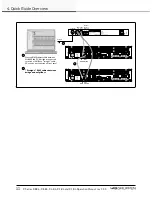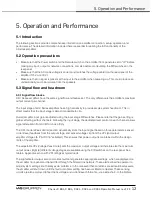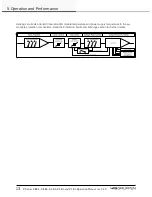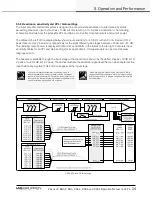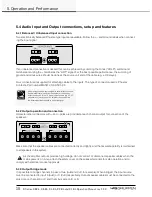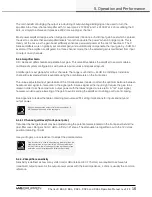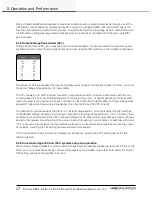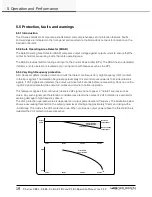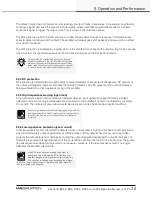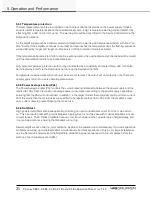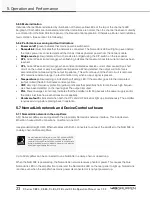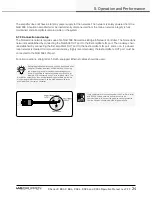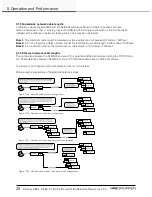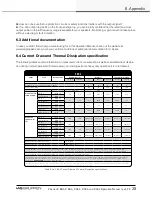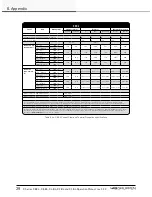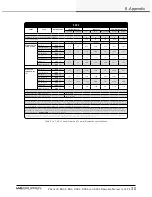
15
5. Operation and Performance
C Series C 88:4, C 68:4, C 48:4, C 28:4 and C 16:4 Operation Manual rev 2.2.3
5.4 Audio Input and Output connections, setup and features
5.4.1 Balanced / Unbalanced Input connection
Two electronically balanced Phoenix-type inputs are available. Follow the +,– and Ground labels when connect-
ing the input signal.
If an unbalanced connection is desired this can be achieved by summing the minus (“COLD”) and Ground
terminals and using the + terminal as the “HOT” signal. For the best possible performance, the summing of
ground and minus wires should be done at the source unit end of the cable (e.g. a CD player).
Four connectors are supplied for attaching cables to the inputs. The type of connector used is: Phoenix
Contacts, Part number MSTB 2,5/3-STZ-5,08
When linking the same source signal to several input channels,
be aware that there is a limit to the number of channels an
output source can “drive”. A typical output source (e.g. a DSP
crossover unit) can drive up to 4 amplifier channels before
line-drivers would be required to buffer the signal.
5.4.2 Output operation and connection
Screw-terminal connectors with + and – poles are provided at each channel output for connection of the
speakers.
Make sure that the speaker cables are connected correctly and tightly, and that accurate polarity is maintained
to all speakers in the system.
As the amplifier outputs produce high voltage, do not connect or disconnect speaker cables when the
mains power is on. Also, attach the safety cover on the speaker terminals for safe operation and to
comply with electrical product approvals.
5.4.3 Output bridge mode
It is possible to bridge channels in pairs of two (A+B and C+D for example). When bridged, the input source
must be connected to input A (A+B) or C (C+D) respectively. Output speaker cables must be connected to the
plus pole on channel A or C and the minus pole on B or D.











